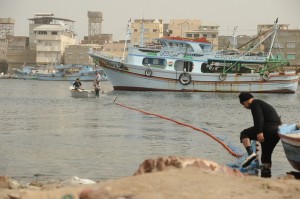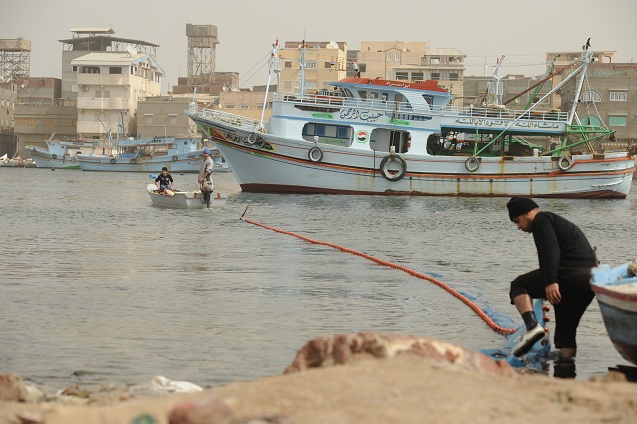
(Photo by Laurence Underhill / DNE)
The Egyptian Foreign Ministry facilitated the return of 300 Egyptian fishermen from Libya on Friday after their disappearance during a Misrata battle.
Misrata, 200km east of Libya’s capital Tripoli, is a major sea port and free trade zone. The port city was hit by air strikes last week, following which Turkish Airlines, the last foreign airline operating in Libya, suspended its flights to the city.
All 300 fishermen lost at sea are from Kafr El-Sheikh, north of Cairo. Egypt’s Foreign Ministry coordinated with the internationally recognised government in Tobruk, the governor of Kafr el-Sheikh, and the head of the fishermen’s syndicate in order to determine their whereabouts.
Violence has flared in Libya at various points since the overthrow of former president Muammar Gaddafi, who was killed in October 2011 by militant fighters
Clashes at Tripoli Airport had begun when militants, backed by fighters, from the city of Misrata launched an assault on the airport, which was under the control of militants from the town of Zitan for three years. Previously, those militias had fought together against the overthrown president.
While its UN-recognised Libyan government resides in the eastern city of Tobruk, an Islamist-dominated assembly has clung onto power in Tripoli, despite losing an election.
The interim Libyan government said that it had asked the leaders of Zitan and Misrata several times to reach a ceasefire and conduct talks. Forces loyal to Libya’s internationally-recognised government began airstrikes on the militia-held Misrata at the end of December, hitting its school of aviation.
Once seen as heroes, ex-rebels, particularly Islamists, have been blamed for attacks that killed dozens of security force members, judges and foreigners in Benghazi, the cradle of the 2011 revolt.
Violence surged in May 2014, when retired general Khalifa Haftar began a campaign to root out Islamist militias from Benghazi. At the time, Libya’s government denounced his actions and declared him an outlaw. Haftar is now a commander of what is left of the Libyan army, which is aligned with the Tobruk-based government.
Haftar, who led ground forces in the 2011 uprising that toppled Gaddafi, sees himself as the chief of the “national armed forces”. The national army fragmented after the fall of Gaddafi, but some of its forces, including the air force, are now under the control of Haftar.
Militias in Libya have recently kidnapped several Egyptian citizens and some have been killed, including most recently a doctor, his wife, and his daughter.




